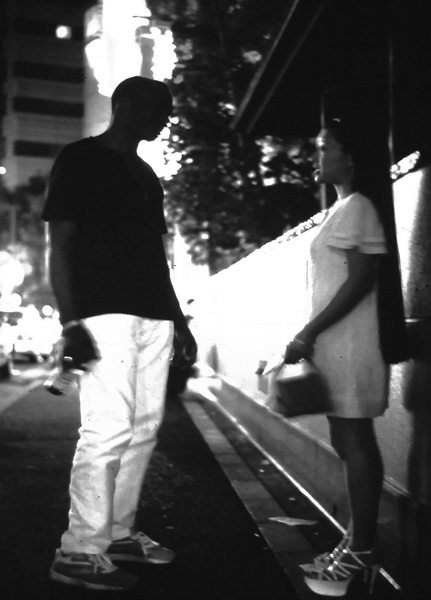
PROSTITUTE POETRY PROJECT
first performed on August 20, 2016
Roppongi Red Light District, Tokyo, Japan
performed once in 2016
MICHAEL BRAMWELL
North Carolina
583940294m583940294i583940294c583940294h583940294a583940294e583940294l583940294b583940294r583940294a583940294m583940294w583940294e583940294l583940294l583940294458394029495839402943583940294@583940294g583940294m583940294a583940294i583940294l583940294.583940294c583940294o583940294m
michaeljbramwell.com
PROSTITUTE POETRY PROJECT
MICHAEL BRAMWELL
“…the woods are lovely dark and deep, but I have promises to keep; and miles to go before I sleep, and miles to go before I sleep.”
—Robert Frost, Stopping by the Woods on a Snowy Evening.
At 2:30am in the Roppongi District of Tokyo everything gains momentum, like most places with love on the beat. The rules of this performance are simple: locate a person employed as a sex worker at night and inquire about their services and customary fees; then offer to pay those fees, if they agree to recite a poem from memory or read one provided by you. Listen as they perform the poetry, smile afterwards, then thank them for providing cultural pleasure and say goodnight.
Projects carry with them a particular vision of the future (Groys, 2003) and this one is no exception; it’s practice-based research that sets out to investigate a question: How can performance and new genre public art methodologies be used to transform human identity? The subject position of “prostitute” is constructed by dominant social discourse that both stigmatizes and defines it as ‘other’ and different. Through this collaborative, community-based cultural intervention, an alternate mapping of negative identity is made possible. The moment of agreement to read or recite poetry in exchange for money, is the moment that short circuits or delays, albeit temporarily, negative identity; sending it through a cultural filter as it were, to arrive at a neutral mid-point, where “she” is neither “prostitute” nor virtuous woman but rather, the female she has always been.
The disruption in the commodity exchange of flesh for money during this random encounter of cultural intimacy with a stranger, is what creates capacity for transformation. The subject position of sexual worker is changed to “culture worker” within the space of one poem. The photograph provides a record through which the performance can be reconstructed (Auslander, 2006), and joins together with this text to constitute the final form of the work.
“I count my cash, it’s been a good night. The street is cold. I head east and I am hungry; but I smile because I know what tomorrow is all about.”
—Wanda Coleman, African Sleeping Sickness.